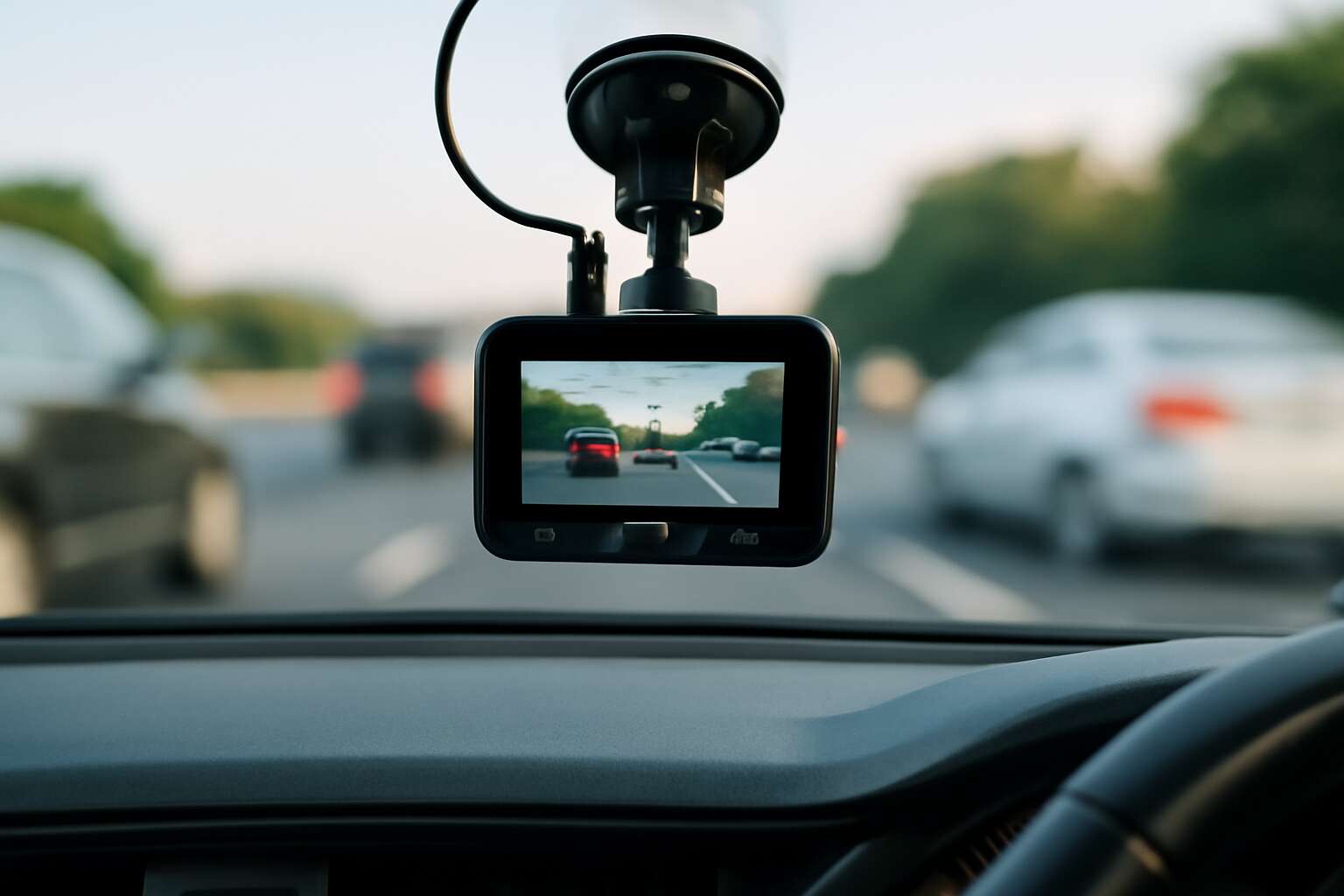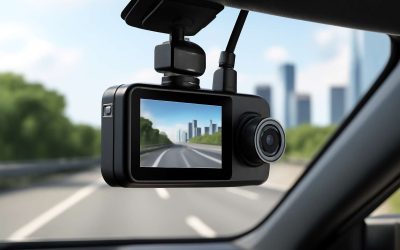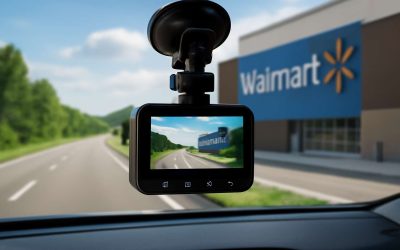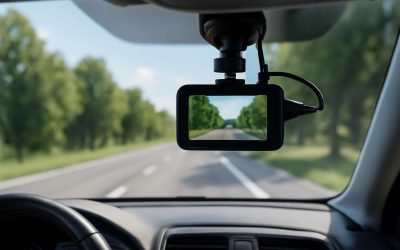Understanding Dash Camera Recording Duration
Types of Dash Cameras and Recording Capabilities
In the shadowy realm of roadways, understanding how long dash cameras record for can be the difference between unraveling a mystery or losing vital evidence in the abyss. Different types of dash cameras, from single-lens models to sophisticated multi-channel systems, each possess unique recording capabilities. Some are designed to overwrite old footage seamlessly, ensuring continuous coverage, while others may only record for a limited duration before requiring manual intervention. The elusive nature of their recording times often hinges on their storage capacity and looping functionalities.
Modern dash cameras often employ a combination of SD cards and internal storage, allowing for flexible recording durations. For example, entry-level models might record for around 30 minutes per loop, whereas high-end devices with larger storage can capture several hours of footage before overwriting. It’s critical to grasp the distinction between these types of dash cameras and their recording capabilities, as this knowledge directly influences how long do dash cameras record for in the event of an incident.
Factors Influencing Recording Time
Understanding the factors that influence how long dash cameras record for is essential for anyone seeking reliable footage in the event of an incident. Storage capacity plays a pivotal role—devices equipped with larger SD cards or internal memory can store hours of footage, ensuring continuous recording without interruptions. Additionally, the device’s looping functionality determines how seamlessly old footage is overwritten, balancing between ongoing recording and data preservation.
Other elements such as video quality settings, recording resolution, and power management also impact the recording duration. For example, lower resolution settings extend recording time but might compromise detail when reviewing footage. Conversely, higher resolutions provide clearer images but consume more storage space, reducing the total recording time. In essence, how long do dash cameras record for hinges on a complex interplay of these technical features, tailored to meet diverse user needs and driving environments.
Standard Recording Durations
In a world where every second of our journey can be a potential story, understanding the standard recording durations of dash cameras becomes more than mere curiosity—it’s a necessity. The question, “how long do dash cameras record for,” often hinges on the delicate balance between storage capacity, video quality, and the device’s looping functionality. These seemingly technical factors weave together a narrative of resilience, ensuring that critical moments are captured without interruption.
Most dash cameras offer a typical recording duration ranging from 30 minutes to several hours per cycle. This variation is largely dictated by the size of the SD card or internal memory, as well as the chosen recording settings. For instance, a device recording in high definition will fill its storage more quickly than one configured at a lower resolution. To optimise footage retention, many dash cameras employ a loop recording system, which overwrites the oldest files once the memory is full. This process guarantees continuous recording, but the length of each recording file can vary significantly depending on the device’s specifications.
- Storage capacity plays a pivotal role in determining how long dash cameras record for, with larger memory cards allowing for extended footage.
- Video quality and resolution settings directly influence recording duration, with higher resolutions consuming more storage space.
- Looping functionality ensures ongoing recording by overwriting older footage, though the length of each clip depends on device configurations.
How Dash Cameras Record Footage
Loop Recording Technology
In the bustling world of modern motoring, dash cameras have become the vigilant eye that never blinks—yet, one question persists with quiet urgency: how long do dash cameras record for? The answer hinges on an elegant dance of technology and memory management. Central to this is loop recording technology, a marvel of efficiency that ensures your device remains perpetually vigilant without drowning in a sea of footage.
Loop recording works by overwriting the oldest footage when the storage is full, allowing continuous recording without the need for manual intervention. Think of it as a revolving gallery—images are replaced seamlessly, so only the most recent events are preserved. Typically, dash cameras are configured to record in segments of 1, 3, or 5 minutes, which means the duration of footage stored before overwriting depends on the size of the memory card and the quality settings. For example, a 32GB SD card might hold approximately 4-6 hours of footage at standard resolution, but this can vary based on the bit rate and video compression used.
- Higher resolution settings reduce total recording time but capture more detail.
- Lower bit rates extend recording duration but may sacrifice clarity.
- Wider field-of-view lenses generate larger file sizes, impacting how long your dash camera can record.
Ultimately, understanding how long do dash cameras record for involves appreciating the finesse of loop recording technology—an elegant solution that balances storage capacity with the necessity of capturing every vital moment on the road.
File Management and Overwrite Mechanisms
Dash cameras aren’t just passive witnesses; they’re digital vaults with a secret—how they manage footage file storage is as vital as the footage itself. These devices employ a sophisticated system of file management and overwrite mechanisms to ensure continuous recording without missing a beat. When the storage reaches capacity, the oldest files are automatically erased to make room for new recordings, all in real-time. This process, known as loop recording, guarantees your dash camera is always ready to capture the next unexpected event.
Understanding how long do dash cameras record for hinges on this seamless cycle. The system often segments footage into manageable files—say, 3 or 5 minutes long—making it easier to review and manage. The overwrite mechanism works silently behind the scenes, prioritising recent footage while safeguarding crucial incidents.
- Efficient use of storage space
- Prevents manual deletion
- Ensures continuous surveillance
This intelligent file management is what transforms a simple device into an ever-watchful guardian, tirelessly balancing storage capacity with the need for vital, timely recordings.
Resolution Settings and Storage Impact
When pondering the question of how long do dash cameras record for, it’s essential to understand the delicate balance between resolution and storage capacity. Higher resolution settings—such as 1440p or 4K—offer crystal-clear footage, yet they also consume storage space at an alarming rate. Conversely, lower resolutions like 720p extend recording duration, but at the expense of detail. This intrinsic trade-off shapes the device’s ability to preserve vital moments without prematurely filling the storage with less useful data.
Modern dash cameras often feature adaptive recording modes that adjust resolution based on driving conditions or user preferences. Some models include multiple resolution options, enabling users to tailor their footage to specific needs. This variability influences how long do dash cameras record for, especially when combined with other factors like loop recording and file segmentation.
- Resolution settings
- Storage capacity
- Loop recording technology
These elements work in concert, determining the longevity of continuous footage that the device can reliably deliver.
Factors Affecting Dash Camera Recording Time
Storage Capacity and Memory Card Size
In the intricate dance of technology and daily life, understanding how long do dash cameras record for becomes a vital piece of the puzzle. These sleek sentinels on our dashboards are governed not only by their internal storage but also by the nuanced interplay of memory card size and recording settings. Each mile driven, each moment captured, hinges on these silent guardians’ capacity to preserve history.
One often overlooked factor influencing recording duration is the size of the memory card. A larger capacity card—say, 128GB or even 256GB—can hold hours of footage, ensuring no critical moment goes undocumented. Conversely, smaller cards limit recording time unless settings are optimised for lower resolution or shorter clips. The quality of video, especially at high resolutions, can dramatically impact how long do dash cameras record for, with higher resolutions consuming more storage space per minute. For those seeking extended coverage, a careful balance between resolution, storage capacity, and loop recording technology becomes essential.
Video Resolution and Frame Rate
The true magic of dash cameras lies in their ability to transform fleeting moments into everlasting memories, but how long do dash cameras record for? The answer hinges on a delicate balance of video resolution and frame rate. Higher resolutions—such as 4K or Full HD—bring stunning clarity but demand more storage space, reducing the overall recording duration. Conversely, lowering the resolution or frame rate can extend recording times but at the expense of image sharpness. This interplay creates a fascinating puzzle for drivers seeking continuous coverage.
When considering how long do dash cameras record for, it’s essential to recognise that these devices often employ intelligent features like loop recording, which overwrite old footage seamlessly. Adjusting resolution and frame rate settings allows users to optimise storage capacity and ensure they capture every crucial detail, mile after mile. The real question becomes: how can one tailor these settings to achieve the perfect balance between quality and longevity? The answer is a game of strategic choices, ensuring the dash camera’s gaze remains vigilant for as long as possible while preserving the integrity of every frame.
Sensor Sensitivity and Video Compression
While the question of how long do dash cameras record for might seem straightforward, the answer is more nuanced than a simple clock tick. Sensor sensitivity plays a pivotal role — a high-sensitivity sensor can pick up even the faintest light, allowing the device to record seamlessly in low-light conditions without sacrificing too much storage. This trait, however, often comes at the expense of increased data size per frame, which can nibble away at your recording duration.
Video compression algorithms, the silent maestros behind the scenes, are equally influential. They shrink video files without losing vital detail, enabling longer recording times without expanding storage requirements. Yet, aggressive compression may lead to artefacts or loss of clarity, especially in fast-moving scenes. For those seeking a delicate balance, understanding these factors is essential: lower compression preserves image quality but consumes more space, while higher compression extends recording longevity at a potential cost to visual fidelity.
Power Source and Battery Life
The true magic of a dash camera lies not only in its ability to capture fleeting moments on the road but in how long do dash cameras record for before their silent vigil is interrupted. Power sources and battery life are the unseen forces that govern this temporal span. Unlike the endless highway, the lifespan of your device’s recording session is limited by its power capacity. A dash camera powered solely by a vehicle’s electrical system can record uninterrupted as long as the engine runs, but battery-powered units are more delicate, with their recording time often measured in mere minutes once the engine is off.
For those seeking extended surveillance, some dash cameras come equipped with built-in batteries or auxiliary power options, which can offer a buffer—perhaps an additional 30 to 60 minutes of recording during engine shutdowns. To optimise recording longevity, consider models with low power consumption and intelligent power management features. Remember, the energy reserve is the heartbeat of your camera’s recording duration, making it a pivotal factor in answering the question of how long do dash cameras record for in real-world scenarios.
Activation Triggers (Motion Detection, G-Force)
In the quiet moments between chaos and calm on the road, dash cameras sometimes activate with a whisper—detecting motion or sudden G-forces that signal a disturbance. These activation triggers are crucial in defining how long do dash cameras record for, especially when the vehicle is parked or unattended. Motion detection, for instance, allows the camera to remain dormant until movement is sensed, conserving power and storage. G-force sensors, on the other hand, respond instantly to sudden jolts or impacts, capturing critical moments even if the driver is absent.
Understanding these triggers offers insight into the delicate balance between continuous surveillance and selective recording. For example, some models prioritise G-force activation, ensuring that the most significant events—accidents, abrupt stops—are recorded without draining resources on mundane footage. Others rely heavily on motion detection, which can be surprisingly effective for parked vehicle monitoring. Ultimately, these features shape how long do dash cameras record for, especially in scenarios where extended recording during inactivity is desired.
Continuous vs. Event-Triggered Recording
In the shadowy corridors of modern vigilance, the question lingers like a ghost in the machine: how long do dash cameras record for? The answer isn’t straightforward—these devices dance on the edge of technology and necessity, governed by a labyrinth of factors that shape their recording lifespan. Continuous recording can stretch for hours, yet it’s often interrupted by the silent whisper of event-triggered modes—those fleeting moments when motion detection or G-force sensors awaken the camera from its slumber. These triggers ensure the footage captures the essence of chaos and calm alike, preserving vital moments without drowning in endless footage.
Factors such as storage capacity, video resolution, and the sophistication of activation triggers weave a complex tapestry that determines how long your dash camera’s vigil endures. For instance, a higher resolution demands more storage, shortening the duration before overwrite. Meanwhile, event-triggered recording can extend the device’s usefulness, especially when the camera responds to sudden impacts or movement—keeping watch over parked vehicles or unassuming streets. Ultimately, understanding these variables illuminates the intricate balance of surveillance, revealing how long do dash cameras record for in the silent, watchful hours of the road’s darkened hours.
Average Recording Durations for Different Dash Cameras
Entry-Level Dash Cameras
When pondering how long do dash cameras record for, the answer varies widely across models, especially within the entry-level segment. These budget-friendly devices typically offer a recording duration ranging from 30 minutes up to 4 hours on a single loop cycle. It’s a delicate balance between storage capacity, video resolution, and power consumption, which ultimately influences recording longevity. Many entry-level dash cameras rely on standard microSD cards, often 32GB or 64GB, to juggle footage efficiently.
In practice, you can expect these cameras to continuously record with automatic overwrite, ensuring vital moments are preserved while less critical clips are replaced. For those seeking a more extended recording window, some models incorporate features like motion detection or event-triggered recording, which optimises storage use and extends overall recording time. This combination of technology and capacity paints a clearer picture of how long do dash cameras record for in everyday use.
Mid-Range Models
Mid-range dash cameras strike a fascinating balance between affordability and advanced features, often delivering surprisingly lengthy recording durations. Typically, these devices can record between 8 to 12 hours on a single loop cycle, making them ideal for daily use without frequent manual intervention. Their larger storage capacities, often supported by 128GB or 256GB microSD cards, contribute significantly to this extended recording time.
Many models incorporate smart technology such as high-efficiency video compression and adjustable resolution settings, which optimise storage without sacrificing essential image quality. For instance, choosing a lower resolution like 720p can nearly double the recording duration, allowing for continuous surveillance during long drives or overnight parking. Some mid-range dash cameras also feature dedicated event-triggered recording, which activates only during specific incidents, conserving space and prolonging recording periods. This makes it easier to answer the pressing question of how long do dash cameras record for in real-world scenarios.
High-End and Commercial Dash Cameras
High-end and commercial dash cameras push the boundaries of recording duration, often serving as vigilant sentinels on busy roads and sprawling parking lots. These devices boast extensive storage capacities—sometimes exceeding 512GB—and sophisticated video compression technologies that make prolonged recording feasible without overwhelming storage. For instance, some professional-grade models can record continuously for over 24 hours, thanks to their robust power management systems and high-capacity memory cards.
When considering how long do dash cameras record for in these advanced configurations, the answer hinges on several factors: resolution settings, frame rate, and the nature of the event triggers. In fact, many commercial models incorporate multiple recording modes, seamlessly switching between high-quality footage for incidents and lower-resolution loops for routine monitoring. This strategic approach ensures crucial moments are captured in superb detail, while less critical footage consumes minimal storage, extending overall recording periods.
Maximizing Recording Time on Your Dash Camera
Choosing the Right Storage Device
Understanding how long do dash cameras record for is essential for anyone serious about vehicle security and evidence gathering. The magic number often hinges on the size of the storage device and the quality of the footage captured. When selecting a storage device, it’s vital to consider both capacity and speed—these two factors directly influence your dash camera’s recording longevity. A larger memory card, for instance, can store more hours of footage, ensuring you don’t miss critical moments.
To optimise recording time, many drivers opt for high-capacity SD cards, which can hold several days’ worth of recordings before overwriting. Remember, the effective use of loop recording technology guarantees continuous coverage without manual intervention. By understanding how long do dash cameras record for, and pairing it with the right storage device, you can ensure your footage is both comprehensive and easily accessible.
Adjusting Video Quality Settings
Adjusting video quality settings is a crucial step in maximising the recording time of your dash camera. Lowering the resolution or frame rate reduces the file size of each clip, allowing for more footage to be stored on the same capacity. This doesn’t necessarily mean sacrificing all clarity—modern compression algorithms maintain a surprisingly high level of detail even at reduced settings, offering a balanced compromise between quality and duration.
For those seeking to extend recording time, exploring the camera’s menu for quality options can be enlightening. Many models feature preset modes—such as ‘economy’ or ‘standard’—that optimise storage without significantly diminishing visual fidelity. Remember, the question of how long do dash cameras record for isn’t solely about storage capacity but also hinges on these adjustable settings. A thoughtful balance can transform a modest memory card into a comprehensive archive of your journey, capturing moments that might otherwise slip into insignificance amidst the relentless march of time.
Regularly Managing Storage and Files
Maximising the longevity of your dash camera recordings hinges on more than just the device’s storage capacity; it requires diligent management of files and an understanding of how to optimise recording parameters. Regularly reviewing and deleting unnecessary footage ensures your memory card remains free of clutter, preventing vital moments from being overwritten prematurely. A meticulous approach to storage management allows for a richer, more comprehensive archive of your journeys, capturing the subtle nuances of road life that often go unnoticed.
In addition, selecting the appropriate file organisation method can greatly influence how long do dash cameras record for. For instance, some models automatically segment files into manageable clips—an elegant solution that simplifies both review and storage. To enhance efficiency, consider implementing a structured schedule for file backups and archiving. This continuous cycle of curation and conservation transforms your dash camera from a mere recording device into a reliable chronicle of your driving history, making every second of footage count.
Using External Storage Solutions
Maximising the recording time of your dash camera often hinges on leveraging external storage solutions. While most models come with internal memory, expanding your storage capacity can significantly extend how long do dash cameras record for. External SD cards, in particular, are a popular choice, offering larger capacities and faster data transfer rates. This means more footage stored over longer periods without the constant worry of overwriting crucial moments.
For optimal performance, consider selecting high-capacity SD cards—up to 256GB or even 512GB in some cases—allowing your dash camera to operate continuously for days on end. To make the most of this, it’s wise to periodically back up footage, especially if you’re recording in high resolution, which can consume space rapidly. Implementing a structured workflow with scheduled transfers ensures that your archive remains comprehensive and accessible, giving peace of mind whether for legal evidence or personal memory.
Legal and Privacy Considerations
Storage Duration and Privacy Laws
Understanding how long do dash cameras record for is not merely a technical question; it’s a gateway into the complex relationship between technology, legality, and personal privacy. With data showing that most dash cameras loop through recordings every 30 to 60 minutes, the landscape of storage duration becomes an ethical labyrinth. Laws governing privacy—particularly in regions with stringent surveillance statutes—dictate that recordings should be stored only as long as necessary for safety or legal purposes. This raises profound questions: what are the moral boundaries of constant monitoring, and how do we balance security with individual rights?
Legal and privacy considerations vary widely, often influenced by local legislation. For instance, some jurisdictions mandate that recordings be deleted after a specific period unless they are linked to an incident. Others restrict the use of recordings for purposes beyond accident evidence, creating a complex maze of compliance. To navigate this, many drivers and fleet operators adopt a disciplined approach, setting clear storage durations—often between 24 hours to a few weeks—aligned with privacy laws and organisational policies. Remember, respecting privacy laws is not just about avoiding penalties; it’s about acknowledging the human element behind every recording.
Best Practices for Video Retention
Understanding how long do dash cameras record for is more than a technical curiosity; it’s a vital aspect of navigating the intricate dance between security, privacy, and legal compliance. In many regions, recordings are automatically overwritten after a set period—often between 24 hours and a few weeks—depending on storage capacity and user settings. This deliberate cycle ensures that sensitive footage isn’t retained indefinitely, respecting personal privacy and adhering to privacy laws.
Best practices for video retention involve establishing clear policies that align with local legislation. For instance, some jurisdictions require that recordings linked to specific incidents are preserved longer, while others mandate immediate deletion unless legally necessary. To stay compliant, it’s wise to implement a disciplined approach, regularly managing storage and deleting outdated footage. This responsible method not only avoids potential legal pitfalls but also honours the human element behind every clip, reminding us that technology must serve both safety and respect for privacy.
Impact of Recording Duration on Evidence Collection
Legal and privacy considerations are at the core of understanding how long do dash cameras record for. In many regions, the duration of footage retention can directly impact evidence collection during disputes or accidents. If recordings are overwritten too quickly, crucial moments may be lost, jeopardising legal proceedings. Conversely, retaining footage longer than necessary can infringe on individual privacy rights, raising ethical concerns.
To navigate this delicate balance, it’s essential to be aware of local legislation governing dash camera recordings. For example, some jurisdictions stipulate that footage related to specific incidents must be preserved for a set period—often 30 or 60 days. Others require that recordings be deleted immediately unless legally mandated. Implementing a structured file management system ensures that relevant evidence isn’t inadvertently erased while respecting privacy laws.
- Understanding how long do dash cameras record for helps optimise evidence collection.
- Adhering to legal standards prevents potential privacy infringements.
By aligning your dash camera usage with these legal and privacy considerations, you ensure that your footage remains both a reliable source of evidence and a respectful nod to individual rights. After all, responsible data management isn’t just about technology—it’s about safeguarding human dignity and legal integrity.




0 Comments